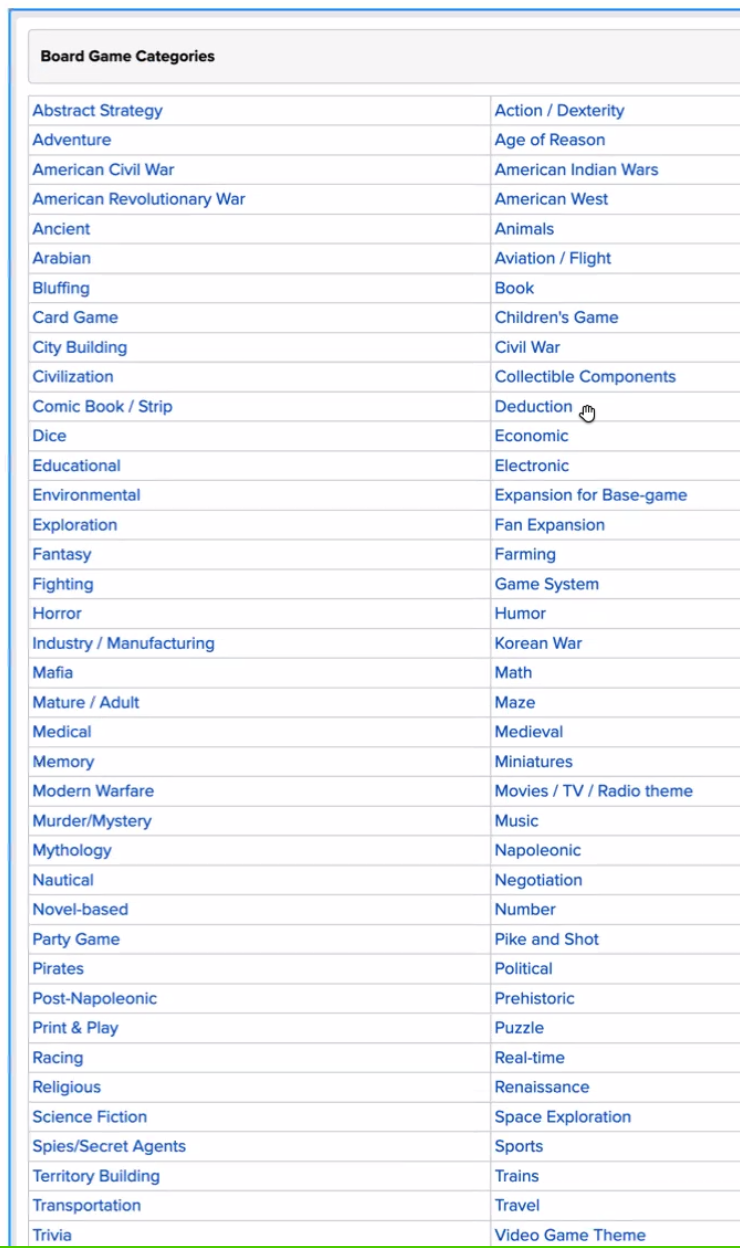Flatiron Tabletop Game Design
-
hostedBy @joshua-robinson (Private) @alyssa-osterback (Private)
-
resources: https://boardgamegeek.com
-
Where is the overlap between product design and tabletop game design
- user psychology:
- what hooks people
- what's too boring/complex
- visual design principles
- "exploration and validation":
- design thinking double diamond
- system mechanics
- comes down to a knowledge of design patterns
- user experience
- information architecture (IA)
- What is the path from A to B
- User decision space
- outcomes and goals
- users come in with preconceived mental models... cognitive load is less when your game fits into their schemas
- information architecture (IA)
- user psychology:
-
defining the project
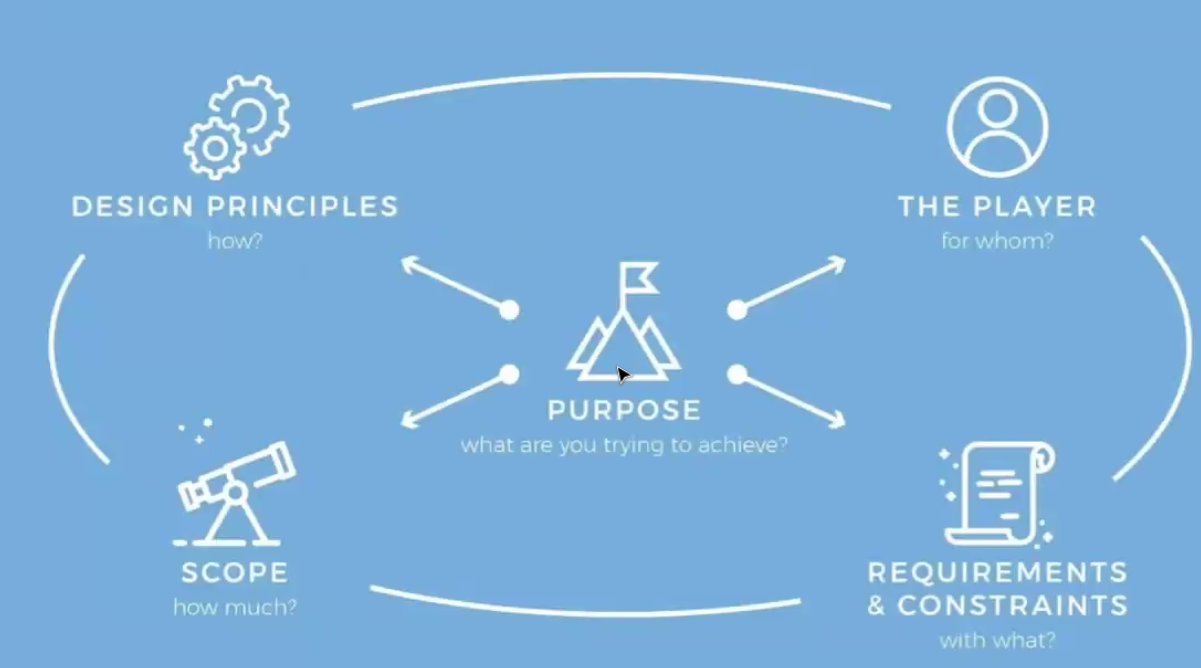
- design principles, e.g.:
- depth > complexity
- simplicity > fidelity
- avoid rigid narratives
- best strategist should would
- constraints
- mechanics
- e.g.
- dice rolling
- end game bonuses
- grid coverage
- hex grid
- pattern building
- set collection
- tile placement
- turn order: stat-based
- variable set-up
- worker placement
- complexity and player cognitive capacity
- what mechanics are removed/added/changed for different player counts
- solo play
- e.g.
- categories
- mechanics
-
Prototyping gives you high-level buy-in
-
players get frustrated waiting for other players
- like axis&allies
- turn-based is inherently frustrating, so give people something else to do when it's not their turn
-
analysis
- satisfaction
- time to goal
- avg # turns/moves/card to goal
- qualitative
- Did you feel like you agaency
-
"build your design process around playtesting. everything else is theorycraft"
-
- color can
- create categories
- indicate interactivity
- create separation
- color can
-
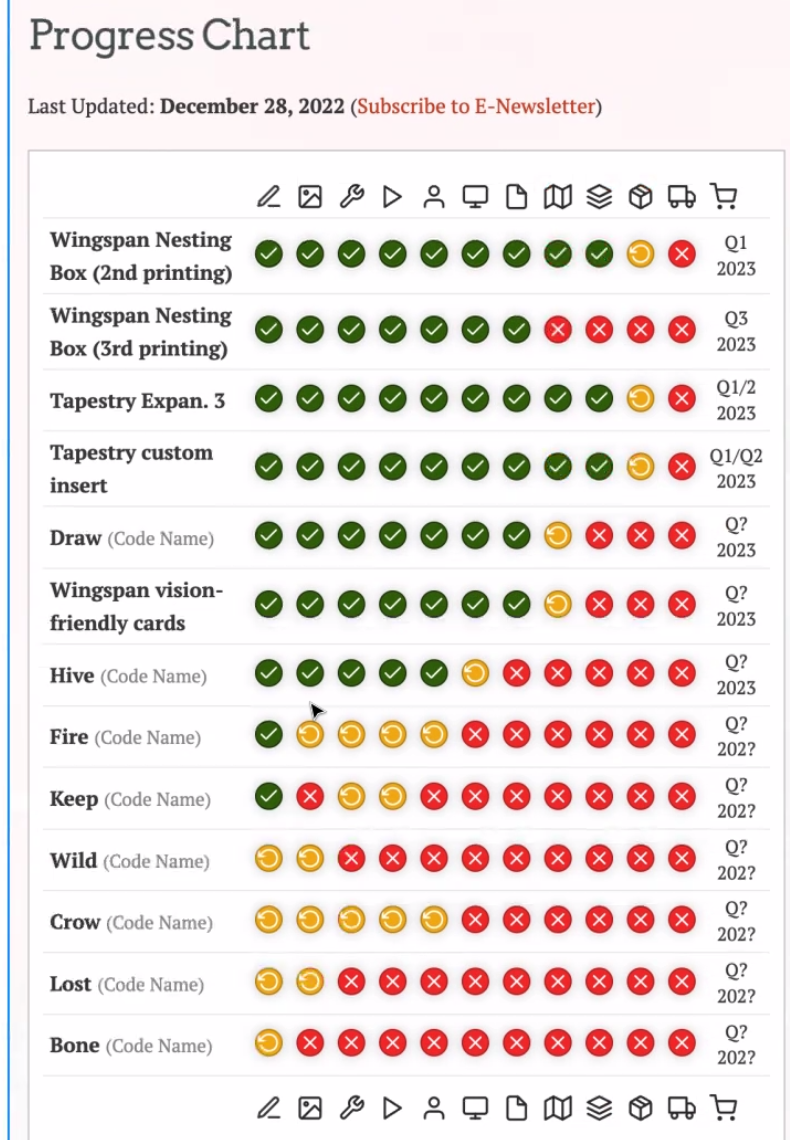
-
What is interesting?
- fun vs challenging
- sweet spot of interestingness
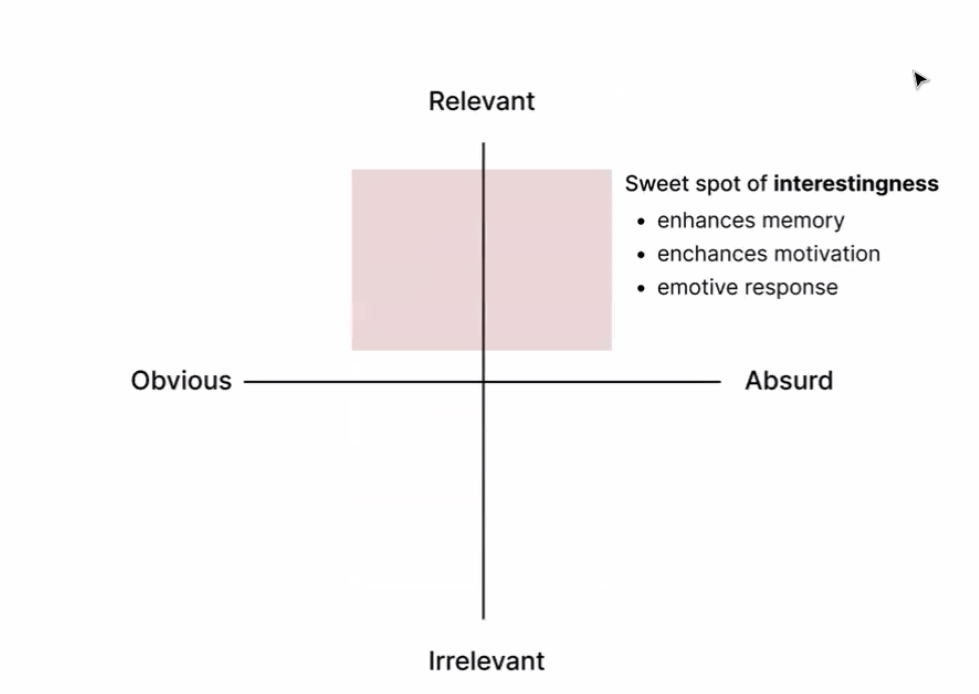
- obvious vs absurd
- relevant vs irrelevant
- enhances memory
- enhances motivation
- emotive response
- triggers of fascination
- pleaure
- mystique: puzzling, being part of a secret
- alarm
- prestige
- power
- vice
- trust
- theory of fun:
- when we find and master new patterns of thought
- to master a game, we have to figure out certain patterns
- once we've done it, the game is not as much fun
- if we can find any patterns, the game is too difficult and not fun.
- games tend to be most fun when pushing us to the edge of our capabilities while simultaneously giving us a sense that master is a real possibility
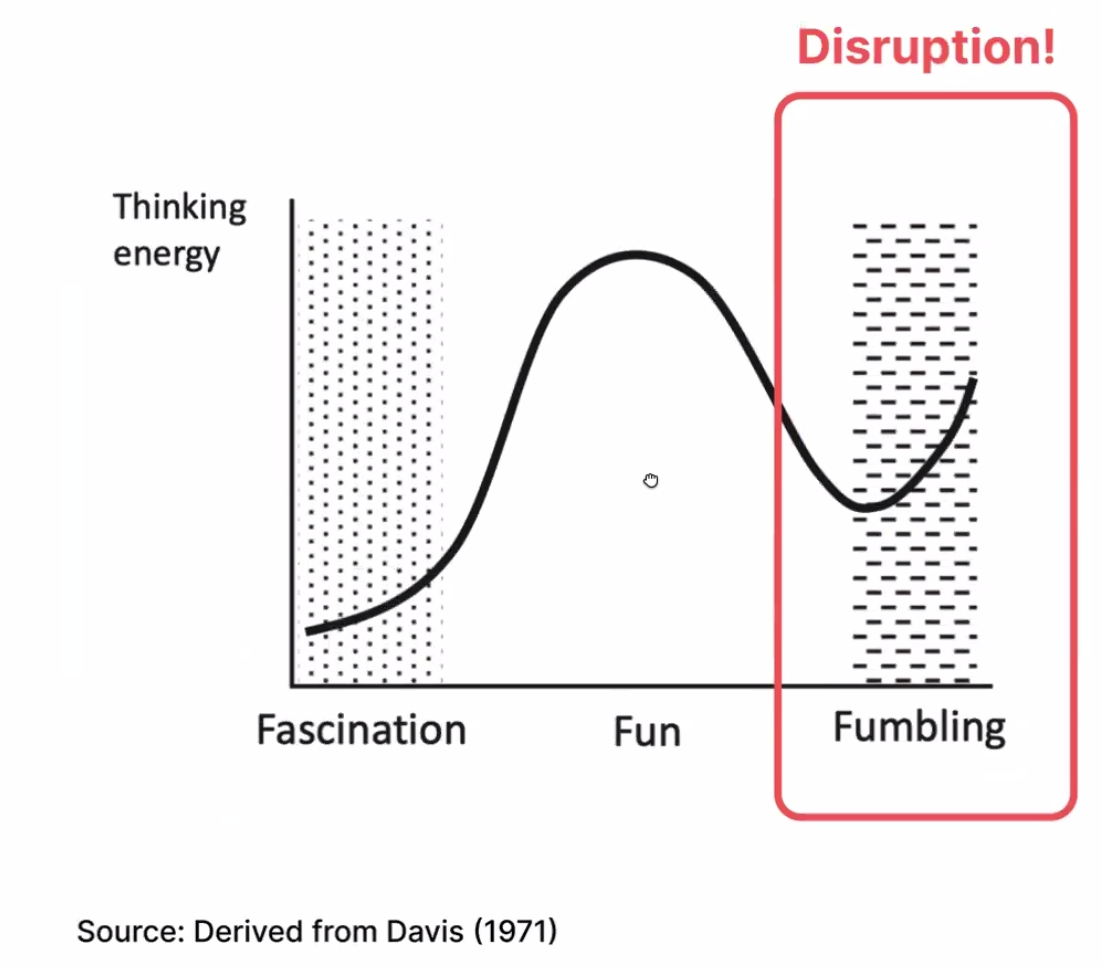
- if we are fascinated, we will have fun looking for patterns
- disruption is often resisted because it takes energy
